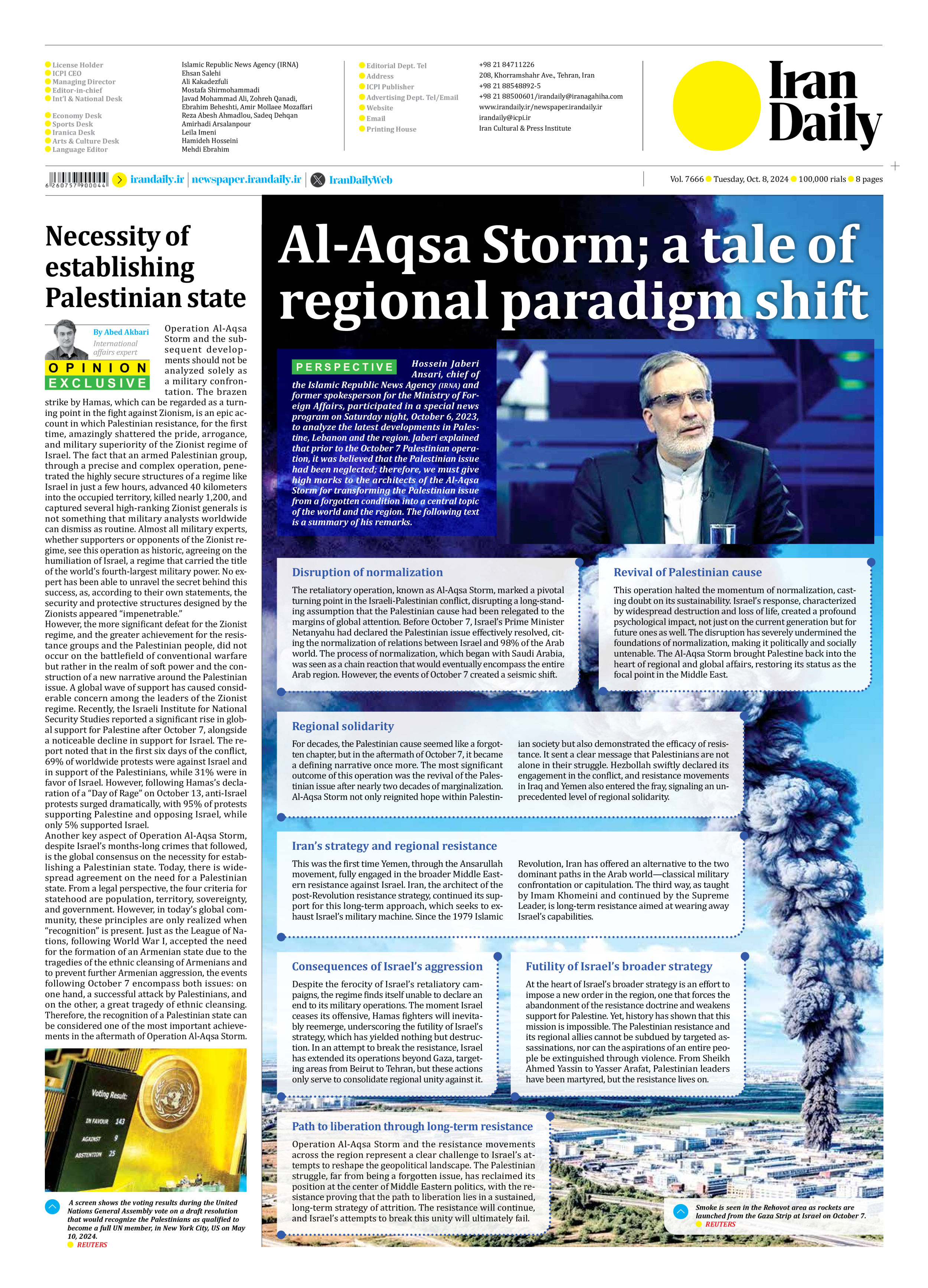
Necessity of establishing Palestinian state
By Abed Akbari
International affairs expert
Operation Al-Aqsa Storm and the subsequent developments should not be analyzed solely as a military confrontation. The brazen strike by Hamas, which can be regarded as a turning point in the fight against Zionism, is an epic account in which Palestinian resistance, for the first time, amazingly shattered the pride, arrogance, and military superiority of the Zionist regime of Israel. The fact that an armed Palestinian group, through a precise and complex operation, penetrated the highly secure structures of a regime like Israel in just a few hours, advanced 40 kilometers into the occupied territory, killed nearly 1,200, and captured several high-ranking Zionist generals is not something that military analysts worldwide can dismiss as routine. Almost all military experts, whether supporters or opponents of the Zionist regime, see this operation as historic, agreeing on the humiliation of Israel, a regime that carried the title of the world’s fourth-largest military power. No expert has been able to unravel the secret behind this success, as, according to their own statements, the security and protective structures designed by the Zionists appeared “impenetrable.”
However, the more significant defeat for the Zionist regime, and the greater achievement for the resistance groups and the Palestinian people, did not occur on the battlefield of conventional warfare but rather in the realm of soft power and the construction of a new narrative around the Palestinian issue. A global wave of support has caused considerable concern among the leaders of the Zionist regime. Recently, the Israeli Institute for National Security Studies reported a significant rise in global support for Palestine after October 7, alongside a noticeable decline in support for Israel. The report noted that in the first six days of the conflict, 69% of worldwide protests were against Israel and in support of the Palestinians, while 31% were in favor of Israel. However, following Hamas’s declaration of a “Day of Rage” on October 13, anti-Israel protests surged dramatically, with 95% of protests supporting Palestine and opposing Israel, while only 5% supported Israel.
Another key aspect of Operation Al-Aqsa Storm, despite Israel’s months-long crimes that followed, is the global consensus on the necessity for establishing a Palestinian state. Today, there is widespread agreement on the need for a Palestinian state. From a legal perspective, the four criteria for statehood are population, territory, sovereignty, and government. However, in today’s global community, these principles are only realized when “recognition” is present. Just as the League of Nations, following World War I, accepted the need for the formation of an Armenian state due to the tragedies of the ethnic cleansing of Armenians and to prevent further Armenian aggression, the events following October 7 encompass both issues: on one hand, a successful attack by Palestinians, and on the other, a great tragedy of ethnic cleansing. Therefore, the recognition of a Palestinian state can be considered one of the most important achievements in the aftermath of Operation Al-Aqsa Storm.







